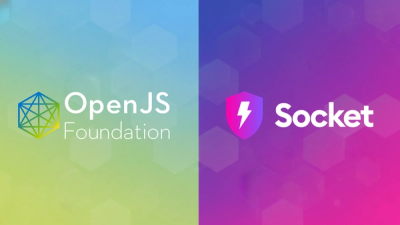
Research
SANDWORM_MODE: Shai-Hulud-Style npm Worm Hijacks CI Workflows and Poisons AI Toolchains
An emerging npm supply chain attack that infects repos, steals CI secrets, and targets developer AI toolchains for further compromise.
@exodus/babel-plugin-react-inline-svg-unique-id
Advanced tools
Babel plugin for applying generated ids to inline React SVG components
Efficient and SSR friendly ID generator at the runtime for inline SVG components definitions.
$ npm install @exodus/inline-svg-unique-id-react
$ npm install --save-dev babel-plugin-react-inline-svg-unique-id
Inline SVG components have a duplicated definitions issue. Let's say you want to import such an icon twice in your page:
const Icon = () => (
<svg height="150" width="400">
<defs>
<linearGradient id="grad1" x1="0%" y1="0%" x2="100%" y2="0%">
<stop offset="0%" style="stop-color:rgb(255,255,0);stop-opacity:1" />
<stop offset="100%" style="stop-color:rgb(255,0,0);stop-opacity:1" />
</linearGradient>
</defs>
<ellipse cx="200" cy="70" rx="85" ry="55" fill="url(#grad1)" />
</svg>
);
The ellipse element gets linear gradient fill which is referenced by id. Inlining two or more such icons in the same page will cause id duplications issues, and the browser might fail to paint the gradient. This library will transform inline SVG components at the build-time and add code that generates ids at the runtime. For example, the previous icon is transformed to:
import { useUniqueInlineId } from '@exodus/inline-svg-unique-id-react';
const Icon = () => {
const gradientId = useUniqueInlineId();
return (
<svg height="150" width="400">
<defs>
<linearGradient id={gradientId} x1="0%" y1="0%" x2="100%" y2="0%">
<stop offset="0%" style="stop-color:rgb(255,255,0);stop-opacity:1" />
<stop offset="100%" style="stop-color:rgb(255,0,0);stop-opacity:1" />
</linearGradient>
</defs>
<ellipse cx="200" cy="70" rx="85" ry="55" fill={`url(#${gradientId})`}/>
</svg>
);
};
With SVGR:
Create .svgrrc.js file in the project root:
module.exports = {
jsx: {
babelConfig: {
plugins: ['react-inline-svg-unique-id']
}
}
};
For more information refer to SVGR transforms documentation.
With SSR:
Wrap your application in the generation context provider:
import { Provider as UniqueIdGeneratorProvider } from '@exodus/inline-svg-unique-id-react';
const YourApp = () => (
<UniqueIdGeneratorProvider>
...your app stuff...
</UniqueIdGeneratorProvider>
);
Customizing generated ID prefix:
Wrap your application in the generation context provider and specify idPrefix property. Note: Prefix property is evaluated once and will not change during sequential rerenders.
import { Provider as UniqueIdGeneratorProvider } from '@exodus/inline-svg-unique-id-react';
const YourApp = () => (
<UniqueIdGeneratorProvider idPrefix="custom-prefix">
...your app stuff...
</UniqueIdGeneratorProvider>
);
It is also possible to nest providers and have different prefixes for separate branches.
import { Provider as UniqueIdGeneratorProvider } from '@exodus/inline-svg-unique-id-react';
const YourApp = () => (
<UniqueIdGeneratorProvider idPrefix="id">
<UniqueIdGeneratorProvider idPrefix="other-id">
// prefix is "other-id"
</UniqueIdGeneratorProvider>
// prefix is "id"
</UniqueIdGeneratorProvider>
);
FAQs
Babel plugin for applying generated ids to inline React SVG components
The npm package @exodus/babel-plugin-react-inline-svg-unique-id receives a total of 1 weekly downloads. As such, @exodus/babel-plugin-react-inline-svg-unique-id popularity was classified as not popular.
We found that @exodus/babel-plugin-react-inline-svg-unique-id demonstrated a not healthy version release cadence and project activity because the last version was released a year ago. It has 102 open source maintainers collaborating on the project.
Did you know?

Socket for GitHub automatically highlights issues in each pull request and monitors the health of all your open source dependencies. Discover the contents of your packages and block harmful activity before you install or update your dependencies.

Research
An emerging npm supply chain attack that infects repos, steals CI secrets, and targets developer AI toolchains for further compromise.

Company News
Socket is proud to join the OpenJS Foundation as a Silver Member, deepening our commitment to the long-term health and security of the JavaScript ecosystem.

Security News
npm now links to Socket's security analysis on every package page. Here's what you'll find when you click through.